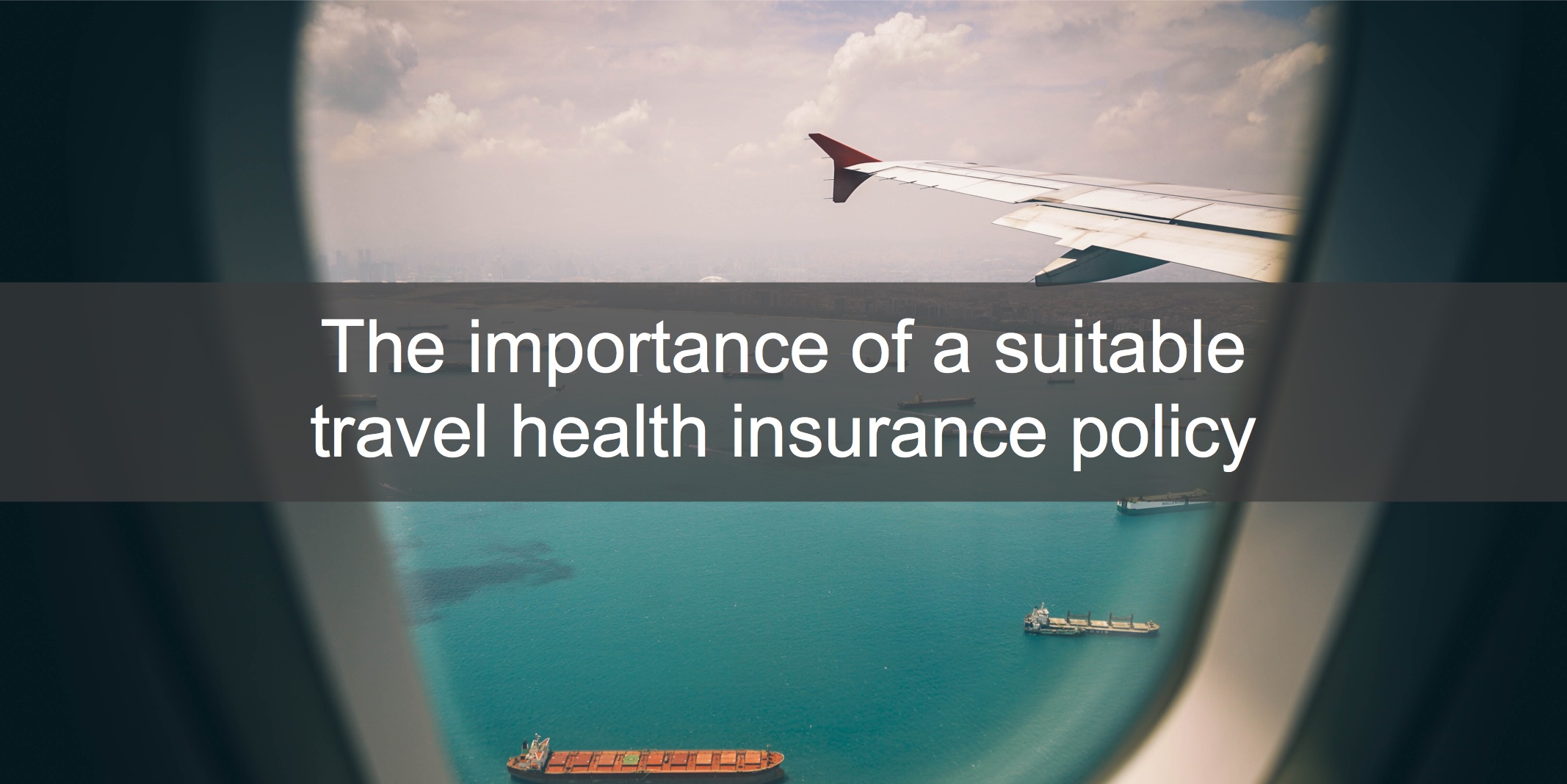The importance of taking out a robust travel health insurance policy, which is appropriate for your needs cannot be underestimated if you plan to travel outside of Canada, no matter where to or for how long. Naturally, there are many different types of product on the market and therefore decisions have to be made in relation to the type of cover that you require but, as a minimum, you should consider taking out health, life and disability coverage so that you don’t get caught out for medical treatment in other countries, should an accident or illness strike. Additionally, it is worthwhile taking out insurance for flight disruptions, lost luggage and documents etc. if you are flying, as such incidents can be costly and inconvenient.
Why do I need travel health insurance?
Some people mistakenly believe that their Canadian provincial or territorial health policy will cover them if they fall sick abroad, but this is almost certainly not the case. Check the small print of your policy to make sure that you understand exactly what you are and aren’t covered for before taking a trip and arrange appropriate additional cover where required. It is not unknown for hospitals in other countries to refuse treatment for patients who do not have health cover or, if they do treat you and you are uninsured, you could be facing a substantial hospital bill which takes you years to repay.
How do I choose my travel health insurance policy?
There are lots of factors to consider when selecting the most suitable plan for you and you should not be afraid of asking questions in order to determine the exact scope and coverage of the policy before committing to it.
Some areas to consider include the following:
- The length of the policy – whether it is continuous, its maximum duration and whether or not you can renew it from abroad if necessary.
- Whether medical costs are paid directly to the health provider in the country of the incident or whether you have to pay directly and are then subsequently reimbursed by the insurer.
- The extent to which the policy covers pre-existing medical conditions. This is a really important area which should not be skimmed over as failure to ensure the exact terms of how pre-existing conditions will be treated could result in them only being partially covered, or even being excluded altogether. Specifically ask for:
- A full list of the definitions, limitations and restrictions relating to your pre-existing condition.
- An agreement in writing confirming that your pre-existing condition is covered.
- A stability clause which details that no changes should be made to new or existing medical conditions, symptoms or medication during the stability period before your trip.
- A compassion clause so that the whole policy isn’t invalidated due to an inadvertent incorrect statement.
- Whether or not the cover provides medical evacuation back to Canada, with a medial escort if required.
- That your medical care abroad and any remote telephone support with the insurance provider is in English.
- How deductible costs are dealt with – going for a 100% coverage plan, though more expensive, gives you greater peace of mind and financial back up should the worst happen.
- In the event that you die abroad, whether your cover will pay for the preparation and return of your remains to Canada.
How do I make sense of my travel insurance policy?
It’s imperative that you read and understand the terms of your policy so that you are fully prepared in case you have to use it.
When taking out your policy, make sure that you give honest, accurate and complete information as failure to do so can invalidate your policy. Ask all of the questions that you need to get assurance that the product meets your needs fully and ask for confirmation in writing for any areas of dispute or uncertainty.
There are a number of things that are not normally covered by insurance companies, so you should check with your provider directly if they affect you. Activities such as extreme sports or treatment for cosmetic surgery or incidents as a result of drugs or alcohol are often not covered by the insurance.
Make sure that you check the Travel Advice and Advisories website both when you are booking your trip and also just before you leave. The purpose of this is to ensure that no Travel Advisories have been issued for your destination as this is likely to impact your insurance policy and it may even be the case that your provider will not cover medical treatment undertaken in a country for which the Government of Canada has issued an official Travel Advisory.
Don’t forget to make sure that your medical paperwork is in order if you do end up having treatment abroad. As a minimum, you’ll need a thorough medical report with a breakdown of the treatment that you have received, with an invoice or receipt. If in doubt, request additional information to safeguard against queries or potential hold ups when it’s time to make your claim
Finally, keep your insurance documents on you or easily to hand when you travel and also pass on the details of your policy to somebody else such as a family member or your travel agent in case they need to act on your behalf in an emergency.
Remember that preparation is key when it comes to taking out a travel health insurance policy and with good planning, there is no reason why you won’t be able to secure a robust policy which meets your needs and gives you the necessary financial and emotional security to enjoy your trip.

